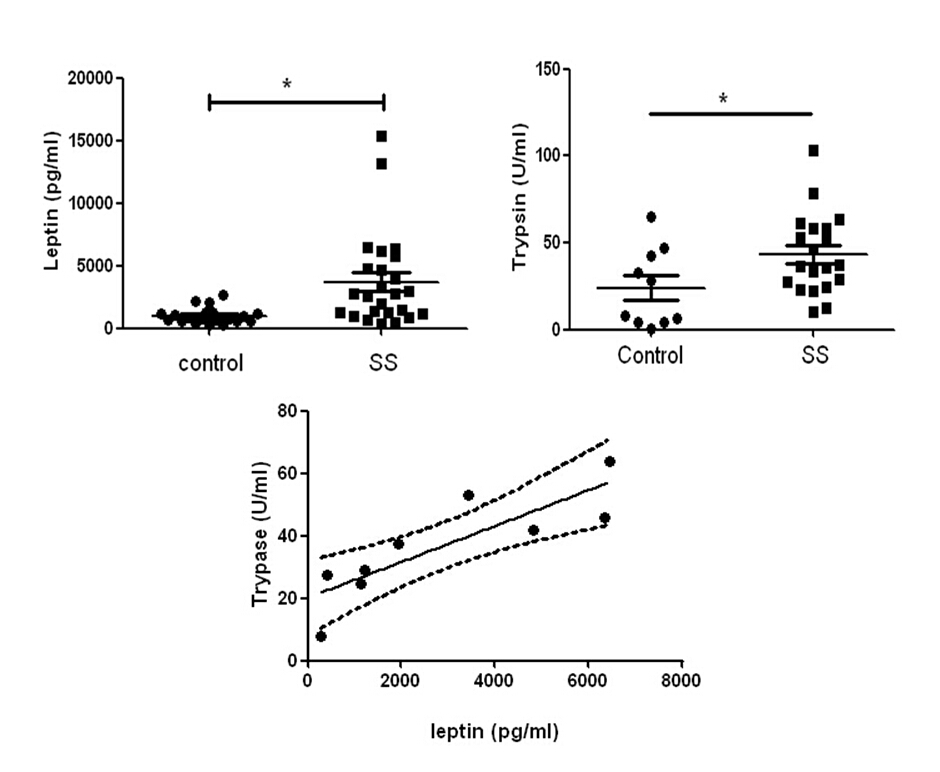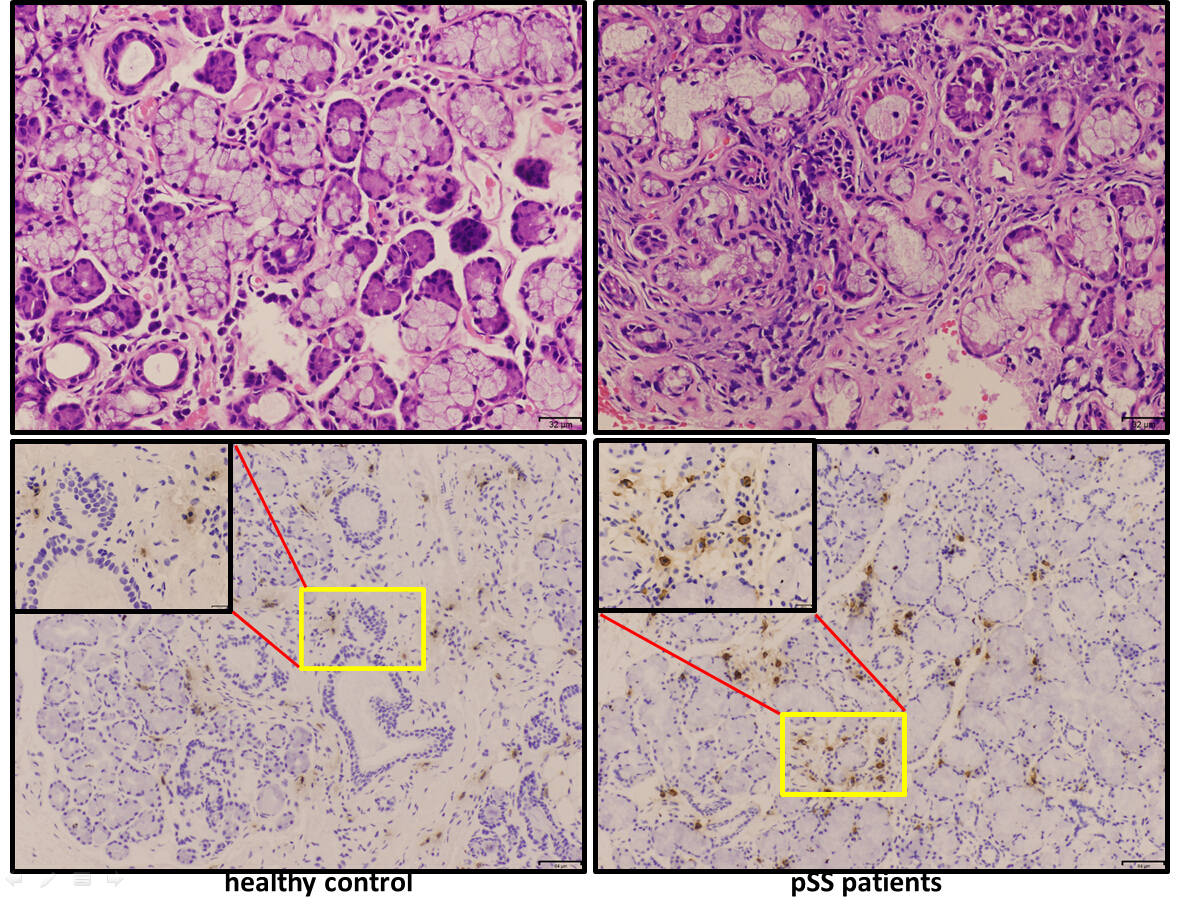Session Information
Date: Monday, November 14, 2016
Title: Cytokines, Mediators, Cell-Cell Adhesion, Cell Trafficking and Angiogenesis - Poster I
Session Type: ACR Poster Session B
Session Time: 9:00AM-11:00AM
Background/Purpose: Mast cells (MCs) are immune cells that produce and secrete a variety of mediators and cytokines, which influence various inflammatory and immune processes. It has become clear that MCs were not only related to allergic reactions, but also involved in several autoimmune diseases. However, the role and precise mechanism of MCs on the pathogenesis of primary Sjogren¡¯s syndrome (pSS) is not completely understood. Leptin is a protein secreted by adipose tissue, which has an important role in metabolism and immunity. MCs were found to express leptin receptors. It is therefore plausible that leptin, through its effects on MCs, may play an important role in the development of pSS. The present study aimed to investigate the distribution of MCs in labial salivary glands in an attempt to elucidate a possible role of MCs in the pSS pathogenesis. Furthermore, this work explored the correlation between MCs and leptin in the pSS.
Methods: All recruited patients fulfilled the American-European Consensus Group criteria for primary SS. The labial salivary glands were obtained from patients with pSS. Mast cell count in labial salivary glands was studied by toluidine blue stain and immunohistochemical staining using monoclonal antibody against tryptase. Serum leptin and tryptase were measured by enzyme-linked immunosorbent assay.
Results: Serum leptin and trypase in pSS patients were significantly higher than that of healthy control. The leptin concentrations were positively correlated with trypase levels in pSS patients (Fig 1). Both the toluidine blue and immunohistochemical stain showed that distribution of MCs was absent from lymphocyte foci, and was preference for location in the connective tissue. MCs were more common in salivary glands in pSS patients than in healthy controls. The MCs were more frequent in labial salivary glands with severely lymphocytic infiltration than those with slightly lymphocytic infiltration, which indicated the number of MCs positively correlated with the disease activity (Fig 2).
Conclusion: Our findings suggested that the proinflammatory role of MCs in the pathogenesis of SS was related to leptin. Treatment with leptin antagonists might be a potential target to control inflammatory activities of MCs in SS. Figure 1  Figure 2
Figure 2 
To cite this abstract in AMA style:
Yao G, Qi J, Shi B, Chen W, Tang X, Li W, Wang D, Sun L. Leptin Promotes Distribution of Mast Cells in Salivary Glands of Patients with Primary Sjogren’s Syndrome [abstract]. Arthritis Rheumatol. 2016; 68 (suppl 10). https://acrabstracts.org/abstract/leptin-promotes-distribution-of-mast-cells-in-salivary-glands-of-patients-with-primary-sjogrens-syndrome/. Accessed .« Back to 2016 ACR/ARHP Annual Meeting
ACR Meeting Abstracts - https://acrabstracts.org/abstract/leptin-promotes-distribution-of-mast-cells-in-salivary-glands-of-patients-with-primary-sjogrens-syndrome/
